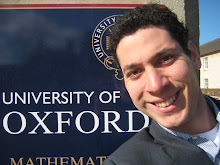
"As a judge, I do not have a political platform. I am not a political person. Right and left, religious and secular, rich and poor, man and woman, disabled and non-disabled – all are equal in my eyes. All are human beings, created in the image of the Creator. I shall protect the human dignity of each of them. I do not aspire to power. I do not seek to rule. I am aware of the chains that bind me as a judge. I have repeatedly emphasized the rule of law, and not the rule of the judge."
Justice Aharon Barack

Photo credit: Law School NY
Ronald Dworkin
by Frank Henry Sommer Professor of Law, New York University School of Law
A new book, Reading Dworkin Critically, describes Ronald Dworkin as "probably the most influential figure in contemporary Anglo-American legal theory." A scholar whose work often is called "monumental" and "landmark," Dworkin is probably one of the two or three contemporary authors whom legal scholars will be reading 200 years from now. New York University School of Law students study with him today.
In Dworkin's view, every legal interpretation reflects an underlying theory about the general character of law; he assesses three such theories. One, previously influential, takes the law of a community to be only what the established conventions of that community say it is. Another, currently popular, assumes that legal practice is best understood as an instrument of society to achieve its policy goals. Dworkin opposes both views, arguing that the most fundamental purpose of law is not to report consensus or provide efficient means to social goals, but to be ethical; that is, to meet the requirement that a political community act in a coherent and principled manner toward all its members.
Perhaps Dworkin's best known book is Law's Empire, which received the prestigious Coif Award from the American Bar Association as the best book written on law over a three year period and the Ames Prize of the Harvard Law School for the best book on law over a five-year period. In the book, Dworkin depicts Hercules as a judge of superhuman intellectual power and patience who accepts and applies law as integrity. Dworkin asks how judges decide what the law is in difficult cases. By showing that judges must interpret--rather than simply apply--past legal decisions, he produces a general theory of what interpretation is and why one interpretation is better than others.
Retrieved May 6th, 2009 from:
http://www.thersa.org/events/speakers-archive/d/ronald-dworkin


0 Comments:
Post a Comment
Subscribe to Post Comments [Atom]
<< Home